 Four years ago, The BRAD BLOG suggested that the "horror that played out during the recent midnight massacre inside a Century theater in Aurora, CO [was] but the latest example of the danger posed to our safety and our very lives by the radical right's expansive interpretation of the Second Amendment."
Four years ago, The BRAD BLOG suggested that the "horror that played out during the recent midnight massacre inside a Century theater in Aurora, CO [was] but the latest example of the danger posed to our safety and our very lives by the radical right's expansive interpretation of the Second Amendment."
A few years prior, the narrow 5-4 decision authored by the late Justice Antonin Scalia in 2008 (District of Columbia v. Heller) marked the first occasion in which a majority on the U.S. Supreme Court concluded that the Second Amendment protects an individual's right to possess a firearm, unconnected to service in a state militia.
In an erudite dissent, Justice John Paul Stevens forcefully argued that the Heller majority had ignored text, history and precedent. We noted that the ruling appeared to elevate "the profits of the domestic small arms industry above the ability of the government to protect our safety, our general welfare, our domestic tranquility and our very lives." More recently, with Orlando on his mind, The Nation's William Greider went so far as to suggest that Chief Justice John Roberts (a member of the Heller majority) "has blood on his hands."
Several factors --- Scalia's death, a 9th Circuit en banc decision which upheld the ability of local governments to deny concealed weapons permits absent extraordinary need, and the public's increasing revulsion in the face of escalating carnage --- suggest that we may be nearing the end to the high cost extracted by the Court's willful misinterpretation of the Second Amendment in the landmark Heller decision...
Heller ignored text, history and precedent
Citing Judge Merrick Garland's willingness to grant an en banc (full court) hearing in the Heller case before it came before the Supreme Court, the National Rifle Association (NRA) openly opposed his nomination to the U.S. Supreme Court this year by President Obama.
While it is always difficult to predict precisely how an individual jurist will rule in any particular case, there are significant legal reasons why Garland, or any new appointee (particularly one made by a Democratic President), should vote to overturn Heller at the next opportunity. Those reasons were set forth in Justice John Paul Stevens's Heller dissent.
The question before the Court in Heller was not new. It was squarely faced by the U.S. Supreme Court in U.S. v. Miller (1939), which upheld a conviction under the National Firearms Act of 1934 because there was no evidence that would demonstrate that the use of a sawed-off shotgun bore a "reasonable relationship to the preservation or efficacy of a well regulated militia."
Stevens excoriated the majority for treating the preamble of the Second Amendment relating to a "well regulated militia" as if it were mere surplusage. "It cannot be presumed that any clause in the constitution is intended to be without effect." Marbury v. Madison (1803).
The complete Second Amendment reads as follows: "A well regulated militia being necessary to the security of a free state, the right of the people to keep and bear arms shall not be infringed."
The first two clauses, "well regulated Militia" and "security of a free State", inform the meaning of the words "the people" in the third clause, Stevens proclaimed.
Stevens insisted that neither historical evidence nor the context of the language, taken as a whole, supports the conclusion that the Second Amendment was intended to secure to civilians the right to "keep and bear" arms for personal use. Indeed, he observed, quoting from the Oxford English dictionary, the words "bear arms" means "to serve as a soldier, do military service, fight."
Justice Stephen Breyer, in a separate Heller dissent, added weight to the argument that the Second Amendment was never intended to prevent legislatures from passing gun control legislation "of great public importance, namely, saving lives, preventing injury, and reducing crime." He pointed out that, at the time the Second Amendment was adopted, Boston, Philadelphia and New York had all placed restrictions on firing guns within city limits and had regulated "the storage of gunpowder, a necessary component of an operational fire arm."
The Rev. Jesse Jackson recently added one more salient point. "We cannot...be hiding behind the 2nd Amendment," he said, "to justify weapons that the writers of the Constitution never imagined."
Keep in mind that when the Second Amendment was passed in 1791, individual "arms" essentially meant a single-shot, muzzle loaded flintlock. Last week, Omar Mateen opened fire inside a crowded nightclub, the Pulse, using a military grade Sig Sauer MCX --- a weapon U.S. special forces refer to as the "Black Mamba." In 1791, an individual shooter would have been physically overcome before he could reload for a second shot. In 2016 a single shooter was able to kill or wound 100 people during this nation's deadliest mass shooting.
It's the guns, stupid!
One should not be all that surprised that Donald Trump, the presumptive Republican nominee, would not only ignore the gun control issue but make the illogical claim that the source of the Orlando massacre can be found in our immigration policies and Muslim terrorism. After all, this is the same Donald Trump who tweeted that the "concept of global warming was created by and for the Chinese in order to make U.S. manufacturing non-competitive." He's also the same Donald Trump who said there was no drought in California.
Neither Trump nor any Republican is well positioned to play the terrorism card on this issue --- not after Congressional Republicans blocked a bill that was designed to prevent individuals on the "Terror Watch List" from legally purchasing weapons inside the U.S.
As John Horgan forcefully argued on behalf of Scientific American, the "Orlando Massacre Exposes Need for More Gun Control, Not More Counterterrorism.
Where the NRA propagates the fact-free myth of the good guy with a gun, The New York Times cited the hard data revealing that Australia has not suffered so much as a single mass killing since it passed its National Firearms Agreement (NFA) in 1996. (This sharply contrasts with the 336 U.S. mass shootings in just one year --- 2014). As reflected by this chart, Australia also experienced a dramatic drop in gun-related homicides following passage of the NFA.

The NFA was passed in the wake of the Port Arthur massacre in which a lone gunman, using a Colt AR-15 with as 30-round magazine killed 35 people and wounded 23. The New York Times reported that the NFA "prohibited automatic and semiautomatic assault rifles and pump shotguns in all but unusual cases." Australia also added "a 28-day waiting period for gun purchases [and] a national gun registry."
The Australia experience confirms the results of a 2007 Harvard School of Public Health study. There's a direct correlation between increases in firearm ownership and higher homicide rates.
A political question
While the legal basis for overturning Heller is sound, the real arbiter of whether the value of our lives exceeds the value of the gun lobby's profits is one that will be put before the American electorate. The GOP refusal to so much as consider a Garland nomination, along with its decision to allow individuals on the "Terror Watch List" to continue to purchase weapons and ammunition, provides a sharp line of demarcation.
Either defeat these miscreants at the polls or risk life and limb on behalf of the profits of the small arms industry.
Ernest A. Canning is a retired attorney, author, Vietnam Veteran (4th Infantry, Central Highlands 1968) and a Senior Advisor to Veterans For Bernie. He has been a member of the California state bar since 1977. In addition to a juris doctor, he has received both undergraduate and graduate degrees in political science. Follow him on twitter: @cann4ing


 Time Running Out For
Time Running Out For 'Green News Report' 10/3/24
'Green News Report' 10/3/24
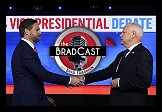 Vance Sane-Washes Trump, Self in Polite, Lie-Filled VP Debate with Walz:
Vance Sane-Washes Trump, Self in Polite, Lie-Filled VP Debate with Walz: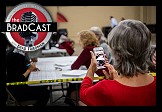 How You Can Help Protect Democracy This Year: 'BradCast' 10/1/24
How You Can Help Protect Democracy This Year: 'BradCast' 10/1/24 'Green News Report' 10/1/24
'Green News Report' 10/1/24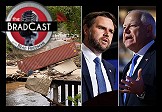 The Predictable Horrors of Helene: 'BradCast' 9/30/2024
The Predictable Horrors of Helene: 'BradCast' 9/30/2024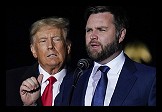 Springfield Haitians Sue Trump, Vance, Musk et al over Defamation, Death Threats
Springfield Haitians Sue Trump, Vance, Musk et al over Defamation, Death Threats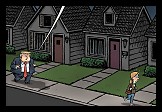 Sunday 'Protection Racket' Toons
Sunday 'Protection Racket' Toons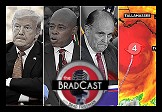 Trump Weaponized Govt Against His Enemies, Vows to Do It Again: 'BradCast' 9/26/24
Trump Weaponized Govt Against His Enemies, Vows to Do It Again: 'BradCast' 9/26/24 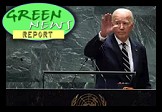 'Green News Report' 9/26/24
'Green News Report' 9/26/24 The Climate and Economy Stakes of 2024: 'BradCast' 9/25/24
The Climate and Economy Stakes of 2024: 'BradCast' 9/25/24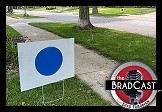 Good News for Democracy in Nebraska, Arizona (Not Montana): 'BradCast' 9/24/24
Good News for Democracy in Nebraska, Arizona (Not Montana): 'BradCast' 9/24/24 'Green News Report' 9/24/24
'Green News Report' 9/24/24 No, GA's New Rule Does NOT Mandate Hand-Counted Results: 'BradCast' 9/23/24
No, GA's New Rule Does NOT Mandate Hand-Counted Results: 'BradCast' 9/23/24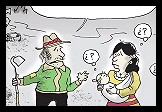 Sunday 'Not Going Back' Toons
Sunday 'Not Going Back' Toons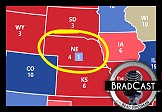 Losers' Stench: GOPers Gaming the Map to 270: 'BradCast' 9/19/24
Losers' Stench: GOPers Gaming the Map to 270: 'BradCast' 9/19/24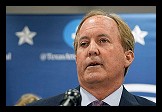 State A.G. and County Election Officials Square-Off Over Voter Registration in Texas
State A.G. and County Election Officials Square-Off Over Voter Registration in Texas 'Green News Report' 9/19/24
'Green News Report' 9/19/24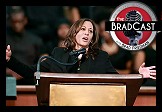 Winning Over White Evangelicals for Harris: 'BradCast' 9/18/24
Winning Over White Evangelicals for Harris: 'BradCast' 9/18/24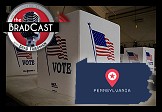 PA County Election Chief on 2024 Challenges: 'BradCast' 9/17/24
PA County Election Chief on 2024 Challenges: 'BradCast' 9/17/24 Trump Supporters Tell Us Why They Still Back Him: 'BradCast' 9/16/24
Trump Supporters Tell Us Why They Still Back Him: 'BradCast' 9/16/24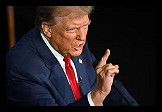 Debate Moderator Was Right: Trump Lost 2020 Challenges for Lack of Evidence
Debate Moderator Was Right: Trump Lost 2020 Challenges for Lack of Evidence TX Vote Suppression; Officials Alarmed by USPS Failure: 'BradCast' 9/12/24
TX Vote Suppression; Officials Alarmed by USPS Failure: 'BradCast' 9/12/24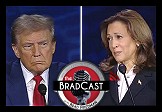 Harris Dominated Trump at Philly Debate: 'BradCast' 9/11/24
Harris Dominated Trump at Philly Debate: 'BradCast' 9/11/24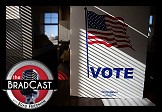 GOP Fights to Suppress Vote in Nebraska: 'BradCast' 9/10/24
GOP Fights to Suppress Vote in Nebraska: 'BradCast' 9/10/24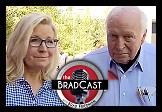 Cheneys Endorse Democrats; Trump Vows to Jail Everyone: 'BradCast' 9/9/24
Cheneys Endorse Democrats; Trump Vows to Jail Everyone: 'BradCast' 9/9/24
 VA GOP VOTER REG FRAUDSTER OFF HOOK
VA GOP VOTER REG FRAUDSTER OFF HOOK Criminal GOP Voter Registration Fraud Probe Expanding in VA
Criminal GOP Voter Registration Fraud Probe Expanding in VA DOJ PROBE SOUGHT AFTER VA ARREST
DOJ PROBE SOUGHT AFTER VA ARREST Arrest in VA: GOP Voter Reg Scandal Widens
Arrest in VA: GOP Voter Reg Scandal Widens ALL TOGETHER: ROVE, SPROUL, KOCHS, RNC
ALL TOGETHER: ROVE, SPROUL, KOCHS, RNC LATimes: RNC's 'Fired' Sproul Working for Repubs in 'as Many as 30 States'
LATimes: RNC's 'Fired' Sproul Working for Repubs in 'as Many as 30 States' 'Fired' Sproul Group 'Cloned', Still Working for Republicans in At Least 10 States
'Fired' Sproul Group 'Cloned', Still Working for Republicans in At Least 10 States FINALLY: FOX ON GOP REG FRAUD SCANDAL
FINALLY: FOX ON GOP REG FRAUD SCANDAL COLORADO FOLLOWS FLORIDA WITH GOP CRIMINAL INVESTIGATION
COLORADO FOLLOWS FLORIDA WITH GOP CRIMINAL INVESTIGATION CRIMINAL PROBE LAUNCHED INTO GOP VOTER REGISTRATION FRAUD SCANDAL IN FL
CRIMINAL PROBE LAUNCHED INTO GOP VOTER REGISTRATION FRAUD SCANDAL IN FL Brad Breaks PA Photo ID & GOP Registration Fraud Scandal News on Hartmann TV
Brad Breaks PA Photo ID & GOP Registration Fraud Scandal News on Hartmann TV  CAUGHT ON TAPE: COORDINATED NATIONWIDE GOP VOTER REG SCAM
CAUGHT ON TAPE: COORDINATED NATIONWIDE GOP VOTER REG SCAM CRIMINAL ELECTION FRAUD COMPLAINT FILED AGAINST GOP 'FRAUD' FIRM
CRIMINAL ELECTION FRAUD COMPLAINT FILED AGAINST GOP 'FRAUD' FIRM RICK SCOTT GETS ROLLED IN GOP REGISTRATION FRAUD SCANDAL
RICK SCOTT GETS ROLLED IN GOP REGISTRATION FRAUD SCANDAL VIDEO: Brad Breaks GOP Reg Fraud Scandal on Hartmann TV
VIDEO: Brad Breaks GOP Reg Fraud Scandal on Hartmann TV RNC FIRES NATIONAL VOTER REGISTRATION FIRM FOR FRAUD
RNC FIRES NATIONAL VOTER REGISTRATION FIRM FOR FRAUD EXCLUSIVE: Intvw w/ FL Official Who First Discovered GOP Reg Fraud
EXCLUSIVE: Intvw w/ FL Official Who First Discovered GOP Reg Fraud GOP REGISTRATION FRAUD FOUND IN FL
GOP REGISTRATION FRAUD FOUND IN FL


































